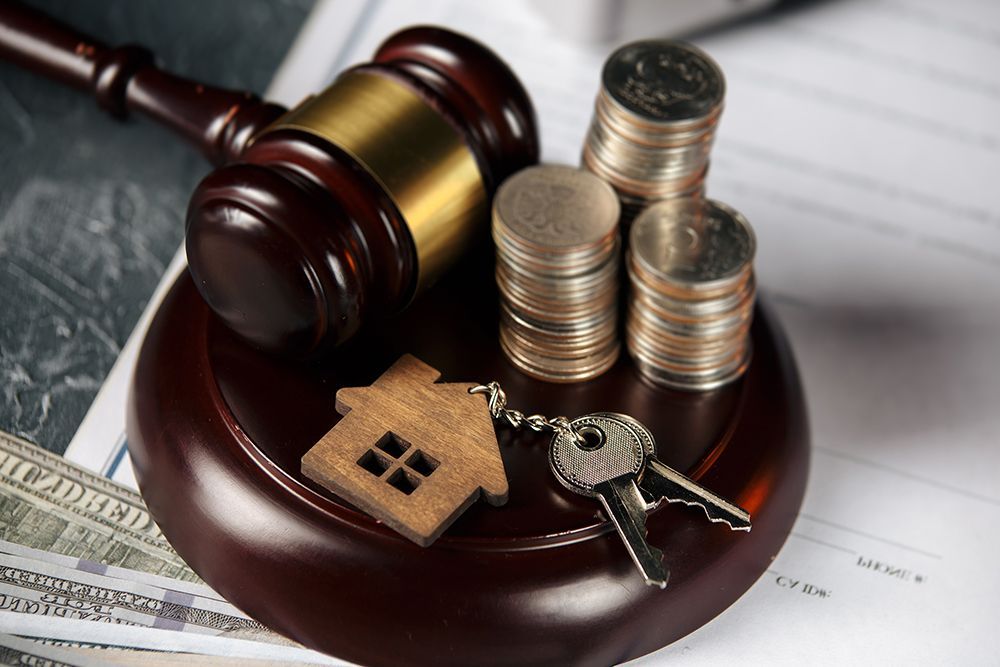Are you being hounded by creditor and debt collectors? Are you behind on your house or car or at risk of repossession or foreclosure? Are you having difficulties with the IRS?
If you are overwhelmed by debt and feel that you are falling further and further behind, you are not alone. Fortunately, HELP IS AVAILABLE to take charge of your financial life.
Under Federal Law (Title 11, United States Code, Chapter 13, Sections 1301 - 1330) an individual with regular wages can consolidate debt into one monthly payment, reorganize their financial affairs, and repay creditors while taking care of their family’s needs, first. Payments to creditors in Chapter 13 are based on the difference between debtor’s average take-home earnings and their average monthly expenses, -- what the law considers a debtor’s “disposable income” – even if a debtor can only afford to repay a portion of their debt. For example, a debtor with $25,000 of unsecured debt can consolidate all of their debt into one payment of less than $50.00 per month. (This figure is based on a below median income Debtor with disposable income of only $50.00 a month, repaying unsecured creditors through a 60-month Chapter 13 plan.)
Chapter 13 bill consolidation is not a loan or a grant, rather it is form of financial reorganization. No credit is needed because this is a right under Federal Law. Citizens and non-citizens qualify. Under Chapter 13, an individual may be able to immediately stop repossessions, foreclosures, wage garnishments, tax liens, even lawsuits. Just as importantly, the protections afforded a debtor under Chapter 13 also put an immediate end to creditor harassment, phone calls, and abuse, putting the debtor under the protection of the Federal Bankruptcy Court and federal law. The following are some of the benefits of Chapter 13:
- Immediately stop repossessions, foreclosure, garnishments, and lawsuits by imposing an "automatic bankruptcy stay".
- Stop creditor abuse and harassment
- Cure missing house payments and other arrears over time
- Repay the IRS on unsecured debt without interest and penalties
- Retain collateral (like cars and furniture) and repay secured creditors based on the value of the property, over a court structure time frame, through a plan of reorganization. This often allows a debtor to lower monthly payments and interest.
- Repay unsecured creditors (like medial debts, credit cards, and signatures loans) without interest, sometimes at a fraction of the total amount of debt.
- Repay all creditors through one monthly payment due on one specific date, as opposed to several payments each due at different times of the month.
- Obtain consumer counseling, budget advice, and information on smart shopping and money management form the Bankruptcy Court and the office of the Chapter 13 Trustee.
- Be given an opportunity (depending upon the actual repayment provisions of your plan) to qualify for a federal credit reestablishment program.
- Be given an opportunity to be debt free within three to five years, repaying creditors at an affordable rate, taking into consideration reasonable monthly expenses and the needs of family.
Bill consolidation under Chapter 13 is a legal proceeding supervised and conducted through the Federal Bankruptcy Court. It is not for everybody and should not been seen as a first alternative to deal with financial problems. It is, however, a viable alternative for those who can still repay their creditors, just not on terms being dictated by creditors. For a free consultation to find out how bill consolidation under Chapter 13 can help you to take charge of your financial life, contact the Blackwell Law Firm LLP at (806) 331-3130. (Texas residents only).
We are a debt relief agency. We help people file for bankruptcy relief.
(The viewing of this material does not establish an attorney-client relationship. The material on this web-site is general in nature and is provided for informational purposes only. None of this information is intended, nor should it be construed as legal advice. For legal advice and assistance, please speak with a licensed legal professional. Troy Blackwell is licensed by the Supreme Court of Texas, but not certified by the Texas Board of Legal Specialization, nor is he licensed to practice law in any other states. This site and the information contained herein may constitute advertising as defined by the Texas Disciplinary Rules of Professional Conduct. The Blackwell Law Firm LLP is not responsible for the content on any linked-sites and/or off-sites. The materials and information on this site are the property of the Blackwell Law Firm LLP and may not be used without the express written permission of the Blackwell Law Firm LLP) "© Copyright 2017
– Blackwell Law Firm LLP"

